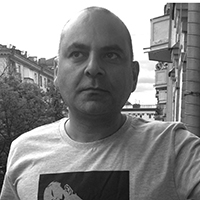Asia’s largest literary festival kicked off in Jaipur, India, last Friday, with over 200,000 people thronging the various stages of the 17th century Rajput-built Diggi Palace in the center of the “pink” city. Free from the controversy that dogged 2012’s festival, when Salman Rushdie canceled his trip because of death threats by Muslim fundamentalists, this year’s festival has a more relaxed, bohemian vibe. Speakers at the prestigious festival include Jonathan Franzen, Gloria Steinem, Novel-prize winner Amartya Sen, Jhumpa Lahiri, Reza Aslan, Jim Crace, and memoirist Ved Mehta.
Looking relaxed in a grey puffer vest, Franzen joked that it was hard writing for an American audience grown used to “sitcoms with laugh tracks.” He admitted that he instead preferred “cold, dark, silent spaces” which helped him focus his mind. Meanwhile, Pulitzer Prize-winning Indian-American writer, Jhumpa Lahiri created a stir when she declared that American literature was “massively overrated” and its reading habits “transformed by the mainstream.” She was in Jaipur to promote her latest novel, The Lowlands, a tale of two brothers set in Calcutta of the 1960s, during the Naxalite uprisings.
American feminist Gloria Steinem was a big draw at the festival, with huge crowds at her talk on the parallels between the American and Indian women’s movements. With India going through a late-birthing feminist movement in the wake of the recent spate of violent rapes, there’s a renewed interest in America’s successful struggle for women’s rights in the 1960s. Steinem praised India’s feminist movement, saying that it “goes back hundreds of years” and had ‘”personally influenced her.” She spoke as part of a new series of talks called Women Uninterrupted, which are an effort by the Jaipur Literature Festival to include more strong female voices in its lineup. Other speakers from the forum included American writer Cheryl Strayed, whose bestselling book about a solitary hike on the 1100 mile long Pacific Crest Trail, is now being made into a film, Wild, with Reese Witherspoon. Audiences also packed a session on Women Writers of the Islamic World, which included Shereen El Feki and Fariba Hachtroudi.
The biggest crowds, however, came for Indian Nobel Prize winning economist Amartya Sen’s speech, in which he made seven wishes for a better India. These included a desire for a strong, secular right-wing party, and a greater role for the arts and humanities in contemporary India. The Iranian-American writer, Reza Aslan, who was demonized by Fox News last year for his recent biography of Jesus Christ spoke to a packed hall. “Americans don’t understand why a Muslim would write about Jesus,” said a Delhi journalist. “But then haven’t many Westerners written about Mohammed in the past?”
Writer and historian Anthony Beevor, author of bestselling books on the Second World War, participated in a thought-provoking panel on the Literature of War and Revolution. He talked about the unfortunate “pornography” of some graphic war writing that hooks the reader with its “dark” appeal.
Meanwhile, bestselling Indian writer Vikram Chandra, made an interesting comparison between Sanskrit grammar and modern programming languages in his latest nonfiction work, The Rasa of Language: Art, Pleasure and Technology. “The similarity between programming languages and Panini’s rules for Sanskrit grammar has led to the basic concepts for computer code being renamed the Panini-Backus Form,” said Chandra.
Though the high profile speakers dominated the conversation, many festival goers were also happy to chill out on the Palace’s green lawns, and open spaces, with masala tea and samosas. The literary festival has a “Central Park in summer” vibe in the late afternoons as jazz bands play behind the ornate fountain, and others sip wine and beers in the intimate bars that have sprung up in the nooks of the Rajput palace grounds. The numerous journalists and delegates to the festival, who are given free food and wine for both lunch and dinner, were having a whale of a time. “What’s not to like about Jaipur,” enthused an English screenwriter. “It’s bloody freezing in England, and here’s its warm and the curry’s fabulous.” The dynamic jazz & rock acts, like Ska Avengers and Medieval Pundits, which perform nightly in the lush gardens of a five-star hotel keep the good vibrations going on until late in the evening. “It’s inspiring that India has such a burgeoning underground music scene,” said an Egyptian journalist. “We have a similar scene in Cairo, but nobody’s talking about it.”
The Jaipur Literature Festival is also unique among global book festivals for being completely “free” for everyone, regardless of their background. It’s a powerful statement in a poor country, where high culture has mostly been out of reach of the underprivileged. This also means, though, that many people skip between various sessions, depending on their level of interest, forcing speakers to be entertaining and engage with the audience. “In the West, people pay separately for each lecture, so the audience is a lot more serious,” said an American writer. “Here, you get all kinds of people, from high-school students to curious office workers, which creates a more fun, relaxed atmosphere.”
The only discordant note marring the festive atmosphere was the sudden death of the wife of Indian writer and cabinet minister, Shashi Tharoor, this past weekend. She was found dead in a Delhi hotel room, just days after their bitter public spat over his “supposed” affair with a Pakistani journalist that went viral on twitter. Tharoor was scheduled to speak at the literary festival on Sunday. Though a few delegates spoke of her death in hushed tones, the scandal wasn’t that much discussed.
It would take more than that to wreck the high of Asia’s biggest and most vibrant literary festival. Chinese writer Xiaolu Guo echoed the mood of the lit fest when she gushed, “I’m overwhelmed by the Jaipur literary festival. If only China could organize a festival like this, with free speech, the world would be a different place.”





